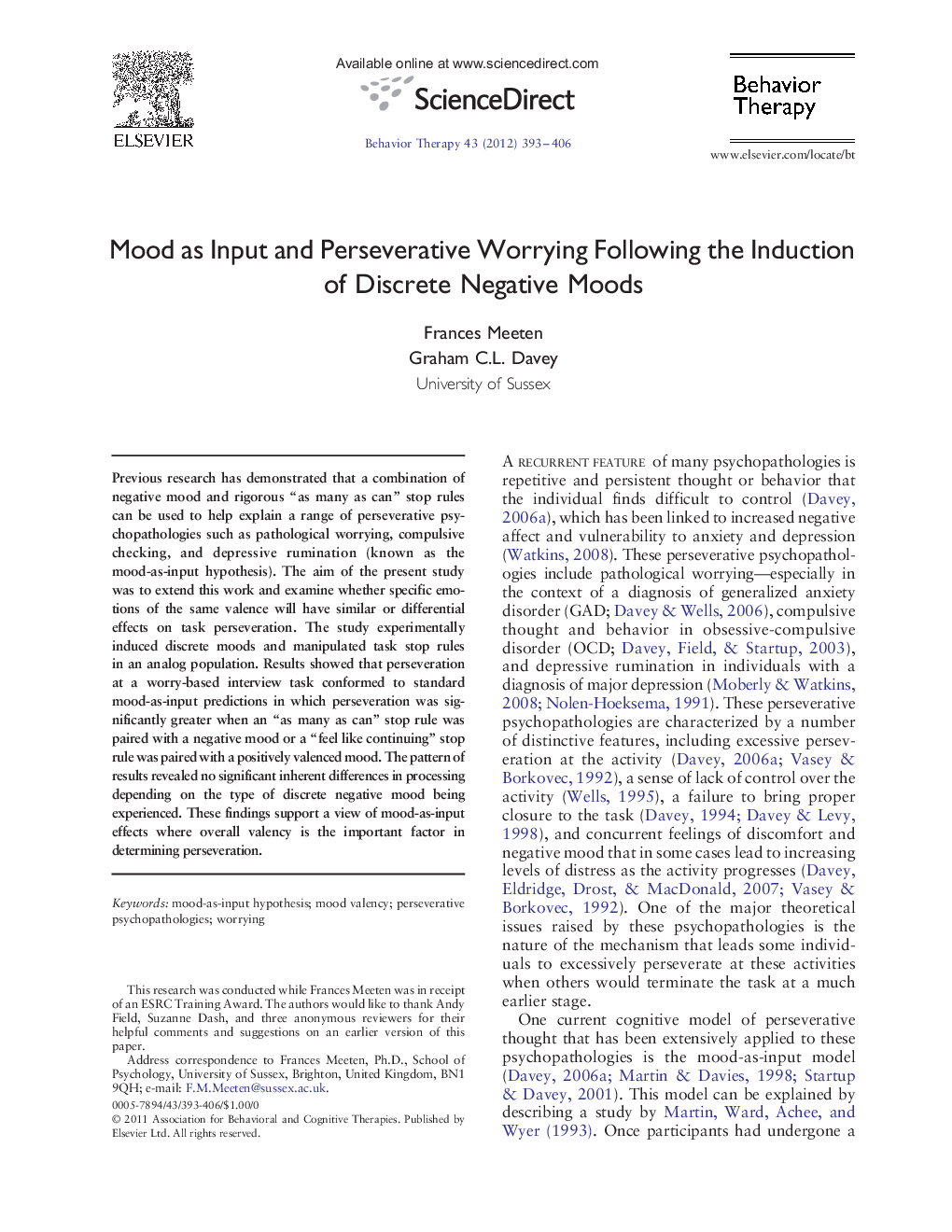| کد مقاله | کد نشریه | سال انتشار | مقاله انگلیسی | نسخه تمام متن |
|---|---|---|---|---|
| 901450 | 915868 | 2012 | 14 صفحه PDF | دانلود رایگان |

Previous research has demonstrated that a combination of negative mood and rigorous “as many as can” stop rules can be used to help explain a range of perseverative psychopathologies such as pathological worrying, compulsive checking, and depressive rumination (known as the mood-as-input hypothesis). The aim of the present study was to extend this work and examine whether specific emotions of the same valence will have similar or differential effects on task perseveration. The study experimentally induced discrete moods and manipulated task stop rules in an analog population. Results showed that perseveration at a worry-based interview task conformed to standard mood-as-input predictions in which perseveration was significantly greater when an “as many as can” stop rule was paired with a negative mood or a “feel like continuing” stop rule was paired with a positively valenced mood. The pattern of results revealed no significant inherent differences in processing depending on the type of discrete negative mood being experienced. These findings support a view of mood-as-input effects where overall valency is the important factor in determining perseveration.
► A mood-as-input examination of perseverative worry with discrete negative moods.
► The study experimentally induced discrete negative moods and manipulated task stop rules for a catastrophic worry task.
► Results revealed no significant inherent differences in processing depending on the type of discrete mood experienced.
► Findings suggest that core affect and stop rule use determine perseveration at an open-ended task.
Journal: Behavior Therapy - Volume 43, Issue 2, June 2012, Pages 393–406